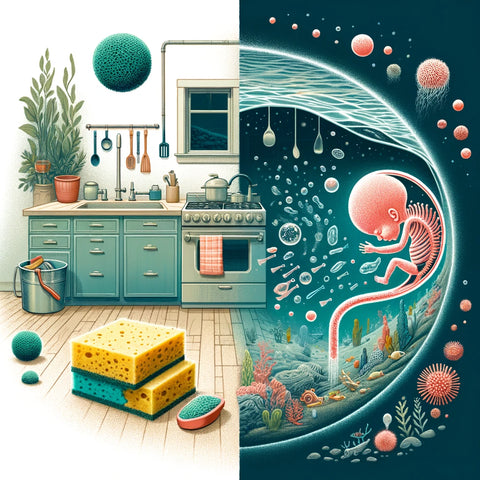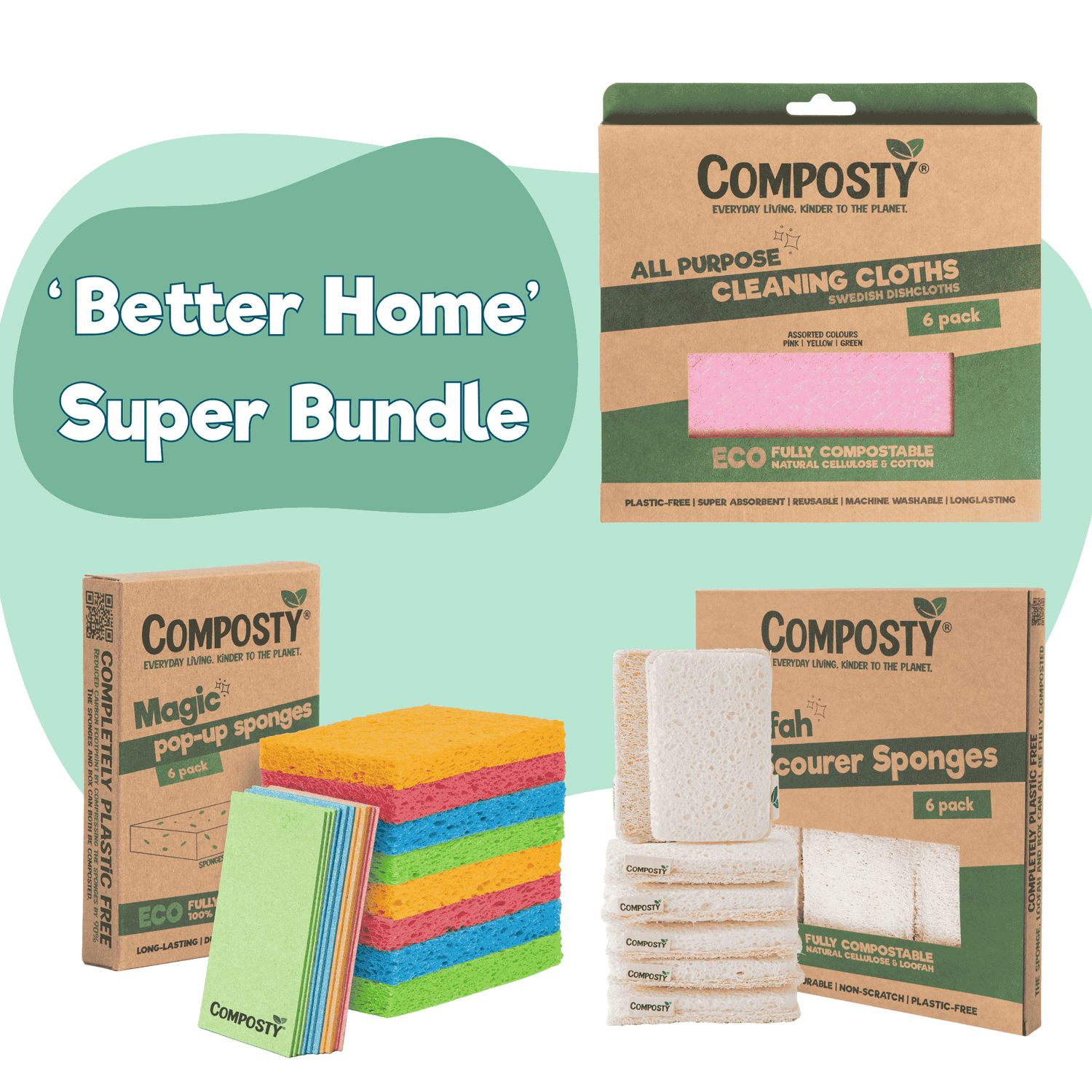
We are feeding microplastics to our unborn babies
You’re standing there, at the sink, armed with a sponge, battling the aftermath of a delicious dinner. Little do you know, your humble kitchen sponge harbours a secret—a microscopic menace embarking on a perilous journey from the depths of your sink into the very essence of our environment, and even our bodies.

Welcome to the unseen saga of microplastics, those stealthy invaders born from the very tools we use to scrub, clean, and polish. That sponge, an unassuming accomplice, sheds tiny particles smaller than a grain of sand, invisible warriors that navigate through our waterways and sneak into our bodies, setting the stage for a modern environmental thriller.
Microplastics in placentas
In a groundbreaking discovery that hits close to home, researchers have found microplastics in human placentas, suggesting these tiny pollutants could be reaching our unborn babies. This revelation paints a concerning picture, as it implies these particles could influence health from the earliest stages of life, traveling across the placental barrier that we once believed to be a stronghold against environmental pollutants. It's a stark reminder of how deeply our reliance on plastics has penetrated our lives, literally feeding the next generation with materials that were once considered marvels of modern convenience.
How does this happen?
As these microplastics voyage from our kitchens and bathrooms, they bypass filters and treatments, mingling with the lifeblood of our planet—water and the fish that live in it. But the plot thickens. These particles are not just aimlessly wandering. They're on a mission, accumulating in the arteries, the heart of human life, whispering tales of potential peril and untold health mysteries.
Research uncovers the alarming presence of microplastics in human tissues—arteries pulsing with life now tainted by synthetic particles. The implications? A spectrum of health concerns, with scientists drawing connections to atherosclerosis—a condition where arteries narrow, choked by plaques. Imagine, the very conduits that carry the essence of life, our blood, under siege by the remnants of our daily conveniences.
But here's the twist: we are not powerless bystanders in this narrative. The journey of these microplastics, while daunting, offers us a choice—a call to arms against the proliferation of plastic. Opting for biodegradable, natural sponges, reducing our reliance on disposable plastics, and advocating for sustainable practices can turn the tide in this environmental thriller.
The story doesn't end here, with the rinse and repeat of our dishes. It continues with us, every choice contributing to either the perpetuation of this invisible invasion or the reclaiming of our health and environment. As the plot unfolds, what role will you play? Will you be the hero, championing for a plastic-free planet, or an unwitting accomplice in the silent spread of microplastics?
The kitchen sponge saga serves as a microcosm of a larger battle, one that weaves through the heart of our daily lives, challenging us to rethink, reimagine, and reshape our relationship with plastic. As we stand at this crossroads, the choice is clear—forge a path toward sustainability, or continue down a road paved with plastic peril.
Let's choose wisely, for the health of our planet, our bodies, and generations to come. The next chapter is ours to write—let it be one of hope, action, and environmental stewardship.

